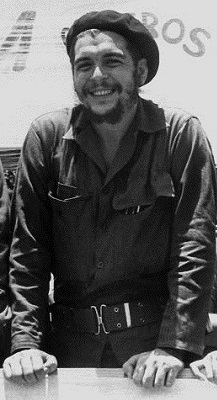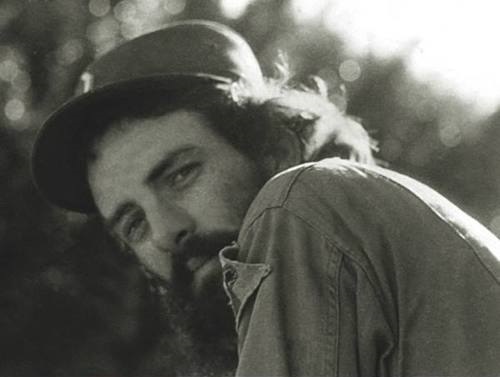|
~ Ernesto Che Guevara
~ Galéria
~ Oldal
~ Bejelentkezés
~ Vissza a Főoldalra
Ernesto Che Guevara, az argentin származású forradalmár, miniszter, gerillavezér és író, Buenos Aires-ben szerzett orvosi diplomát, majd a kubai forradalom során jelentős szerepet játszott a szigetország felszabadításában és újjáépítésében. A kubai gazdaság talpraállításáért dolgozott, küzdött az oktatás és az egészségügy fejlesztéséért, az írástudatlanság és a faji előítéletek felszámolásáért. Saját példájával népszerűsítette az önkéntes munkát. Kongóban és Bolíviában is harcolt - harminckilenc éves volt, amikor az amerikai-bolíviai csapatok csapdába ejtették és kivégezték.
| | |
|

| | |
|
|
|
Camilo-ra emlékezve...
|

Ötvennégy évvel ezelőtt ezen a napon, 1959. október 28-án Camilo Cienfuegos, a kubai forradalom egyik vezéralakja, egy repülőgép-balesetben eltűnt az Atlanti-óceán felett. Sem az ő, sem a gép maradványait nem találták meg, noha komoly kutatás folyt.
Minden év október 28-án a kubai iskolásgyerekek virágokat dobálnak a tengerbe (vagy a folyóba, ha a sziget belsejében élnek), így emlékeznek a nagyszerű, bátor harcosra.
|
|
Fifty-four years ago on this day, on 28th October 1959 Camilo Cienfuegos, one of the leaders of the Cuban Revolution, disappeared in a plane crash over the Atlantic Ocean. Neither his body, nor the remains of the aeroplane have ever been found, though a serious searching was made.
Every year on 28th October all the Cuban school children throw flowers into the sea (or into a river if they live inland) to honor and remember this amazing, brave fighter.
|
|
|
| | |
|
|
|
~ Ernesto Che Guevara
~ Gallery
~ Site
~ Log in
~ Back to the Main page
Ernesto Che Guevara, the Argentine-born revolutionary, minister, guerrilla leader and writer, received his medical degree in Buenos Aires, then played an essential part in the Cuban Revolution in liberating and rebuilding the country. He did his best to set up the Cuban economy, fought for the improvement of the education and the health system, the elimination of illiteracy and racial prejudice. He promoted voluntary work by his own example. He fought in the Congo and in Bolivia - he was thirty-nine years old, when he was trapped and executed by the joint American-Bolivian forces.
| | |
|
|

